Lights, Camera, Action! Followed by elaborate sets, numerous flights to exotic locations, and some star tantrums later, a multi-million dollar movie is released… Films evoke so many memories from our favorite childhood stars to celebrity crushes to at times even shaping our ambitions.
Have you ever wondered, what it takes to produce your favorite Netflix or Prime show? Or your favorite big-budget Hollywood, European, or Bollywood movies? Well, you guessed it right – excellent actors, screenplay writers, movie directors, art directors, stunt artists, camerapeople, among others. However, seldom do we pay attention to how much resources did it take to create the movie and how sustainable was it.
Did you know? According to a research report, every hour of TV contributes to the equivalent of 9.2 tCO2e/hr globally. And isn’t it an irony – the medium through which we get to know more about sustainability in itself doesn’t follow sustainable practices?
Not many of us know but filmmaking is one of the biggest polluters of the world owing to the fact that it brings together multiple industries – fashion, transport, tourism, food, and catering, among others.
While big production houses like Walt Disney, Universal, Paramount, Warner Bros, Columbia has started adopting sustainable filmmaking practices, there is still a lot more that needs to be done in this area.
We caught up with Roberto Andrés, Co-founder and Creative Director at Fën, an Ecological Arts Collective dedicated to create, share and spread sustainability and awareness through solar-powered and zero waste content.
Here is an edited version/excerpts of our conversation with Roberto on sustainable filmmaking, for the full discussion please watch the video.
Can you help demystify sustainable movie making for us?
In a nutshell sustainable filmmaking is how we make films, not only to tell stories that are about ecology and about the environment but also how we make them.
How we as producers and professionals can find the greenest practices and the greenest technology to create a film that is not only trying to tell a good story but it’s also about looking for ways to reduce its carbon footprint to the minimum, hopefully to zero.
There are a lot of aspects of movie-making. There are a lot of people involved in movie making. How do we go about sustainability there?
You need to have an eye on every little area like the cinematography, art direction, screenwriting, etc. The number one thing to do is to calculate how much you think you’re gonna generate.
For example, a film will tend to have multiple trucks in order to carry equipment and actors, motorhome for big stars, catering, lots of plastic and styrofoam in order to have a bunch of coffees throughout the day.
In the terms of art direction, they will build lots of sets and that can go to the trash if it is not made in such a way that it can be deconstructed and used again.
The scriptwriting for example. We print the scripts. Usually, you will have your first version of one script, then maybe the second version, you will send it to the actors, crew, then change your mind about something and print it again and it is then given to the crew. We have all these things that are happening all at the same time.
There is a lot of waste in filmmaking because filmmaking is about being fast! When you see these big movies – they shoot in this place; they’re there in an hour, they do their thing and they’re gone. It happens so fast and when you act that way you may not be the best neighbor. If you don’t have a team that is staying there to clean up & recycle, and make sure to leave the place better or the same as it was before they got there.
When it comes to making sustainable filmmaking there are a lot of things to consider.
There are so many levels of artistry and industry working at the same time. The key is what can we do before it happens in order to reduce our carbon footprint. Planification is the master key.
Before you started Fën, what was your journey like?
I always wanted to be an artist.
Initially, I wanted to be a singer and I still do music. Then I went into painting, post which I wanted to be an actor. I had an experience acting in a short film which made me realize that I actually wanted to tell stories. So, I decided to go for filmmaking.
I studied filmmaking after school when I was 18 years old but I always felt like I didn’t just want to make entertaining movies. There are a lot of them. I can make explosions and make people laugh, that’s fun!
But there was so much happening in the world. I always tell this to my brothers and people that know me, whom I can say cheesy things, that I want to leave the world as a better place than the one that I came to inhabit.
I was studying filmmaking and I knew that I wanted to make films about social issues. I wanted to highlight social issues, wanted to help people and communities. I wanted to help the underdog. I wanted to help people that didn’t feel empowered because I felt like I didn’t feel so empowered when I was growing up. I always felt a bit weak and sensitive.
When that moment came to me to pick on which social issue I was gonna focus I started diving more into ecological activism. There were a lot of issues in Chile regarding fossil fuel industries polluting small towns, an entire kindergarten of 60 kids all got sick because of this polluting industry right next to them. For me, it became a very important thing. I was going to protest. I was arranging the pamphlets, bringing them, and shouting.
Then I realized that I’m gonna graduate in two years and I’m gonna be part of an industry which is the second most polluting industry. It’s right after oil refining and then it’s Hollywood filmmaking and then the next is the hotel industry and fashion industry.
But this is in second place and I was like wow! How is that possible! I had been learning about sustainability and social issues through films and documentaries and I realized that I’ve been learning all these things through this kind of media which is not representative and it’s not acting in consequence with its words.
That for me was the beginning of the journey when the conflict that started inside of me – I am doing something I love doing but the way that the world is doing it doesn’t seem to be the right way! I started thinking about how do we grab this and wrap it around things that we care about so that it is something that is more supportive of life on the planet. That was the beginning of my journey.
Fascinating! When did Fën start?
Fën started a year after I graduated. I did my thesis on sustainability. At that time, there were two documents, one from the United States and one from Canada, that talked about sustainable filmmaking. But they were very forgiving; they were like oh you could try this, you could try to do that.
I wanted to be very dogmatic. I wanted to be extreme. I wanted to be like if you don’t have solar energy, don’t make your films! I wanted to push the line.
I graduated and got good grades. Then I went straight to work. I was already doing my internship at a TV show series. After about six months, I figured that I had to do the things that I was talking about in my thesis.
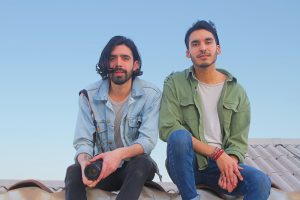
The first thing I did was I got a shitty job as a bartender for like one month and with that money, I bought a solar panel. I already had a camera and a computer that I can edit my films with. So I just went and I started doing things with my brother Juan Pablo, who’s the other half of Fën.
We did a short film with solar energy. Then we did a bit bigger with other people; we brought them together. When we tested it and it was like okay if we can do this there is no reason why this wouldn’t be applicable for bigger productions.
If we are able to get our own energy from the sun, feed our crew members with organic, locally produced food, and if we are able to recycle and have a station set up, why wouldn’t they be able to do this in bigger productions?
That was the beginning of Fën which was in 2014 when it officially started.
Then I wanted to travel, so I left for Europe and I have been living in different countries for the last five years. And then with my brother Juan Pablo, we got back together in Berlin and it felt like we need to get this back because nobody has really done it.
When you look at sustainable filmmaking you will find some stuff online but it’s a really small community. There are like very few websites that you will find and that will be the end of your information.
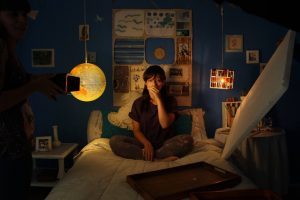
I was doing music and my brother was doing illustrations. We just felt like we needed to do this because we had the experience but we also wanted to teach about it and we wanted to make others learn about it. We’ve been giving seminars and we’ve been giving talks or workshops where we did solar energy powered slow motion in a festival before CoVID at the beginning of the year. It’s kind of taken a life of its own.
There are certain things that I like to do and certain things that Juan Pablo likes to do and then there are things that Fën needs to do. We do whatever needs to be done and we do it with all of our love and all of the energy by putting everything that we know into practice.
If a big production house comes to Fën, how will Fën be able to help? Do you provide consulting services?
The way that we are focusing right now is that we are doing it two ways – we both do our own little things as we do as artists, we need to have our voice, and right now we are working on a new sustainable short film which we plan to send to film festivals and people can see it all around the world – what is this process about – and so people can do it and replicate it.
We also do jobs for other people and we do them also with a sustainable view. For example, somebody is doing digital content for their YouTube, we will do that content with solar energy, and we explain how we get carbon neutral.
So far we haven’t gone into asking people for anything because we feel like it just needs to happen. We need to have that transition and there are so many filmmakers who are just starting right now and they care for the environment. We want to approach those people. Some colleagues who are already working are already seeing the problems with the industry but they don’t know what to do about it. We tell them this is what you can do about it.
So, yes, we do our own projects and we help other people to make their own projects. We are doing it all under the sustainable landscape.
Which is the biggest area in the filmmaking process that is impacting the environment the most?
A movie that you will see in your cinema (not an indie or a small film) or on a Netflix screen will emit around 3000 tons of CO2. Out of that, around 50-60% comes from diesel for transport and for generating electricity.
For a lot of big movies, they go to a location and they bring their big diesel generators. They power everything with this – lights, camera, sound, cross production, etc. Then there is this idea that Brad Pitt has his own motorhome and don’t get me wrong I love that guy but you don’t need your own huge vehicle! I think that is a problem that we need to be talking more about because if we are moving towards a more conscious, equal, and cooperative future we need to see that. The star system doesn’t work, maybe it’s a bit outdated.
Instead of trying to make other people feel like they’re more special and they can have their own motorhome and take some vehicles off the road. That is definitely the number one hardest part to work around on.
Then it’s probably catering. It comes right after but luckily we have a lot of advances on that. Now everybody knows how plastic is not good and everybody knows about the problems with single-use plastic. If you know about this and you’re not doing anything then that’s like you have a big problem. In general, movie sets are going towards having everybody having their reusable water bottles and they’re trying to get rid of plastic. Also, digital media on screenwriting is becoming easier and everything is more digital.
But yes transport and diesel is a problem. I think solar energy and hydrogen could be solving those things but it’s still taking some time to make that transition.
…and probably electric vehicles as well?
They can use electric vehicles and it will definitely help. The only issue with electric vehicles that I’ve seen so far is that you might have a hard time finding the powering stations. Even if a country gets into electric vehicles, if you don’t have power stations they won’t be able to go anywhere.
Just the other day I read that in New Zealand, they’re planning to change their entire fleet of trucks to zero-emissions hydrogen trucks! I thought if Hollywood has all this money, they should be getting those hydrogen trucks and turn them into equipment trucks, etc.
If you are shooting in the city, people can use public transport or get on a bike – it not only makes you happy but also makes your blood pump. It’s nice for you and also stands for the environment.
Also, if you’re gonna make a short film and you wanna have your crew to engage you can always reward them for coming to the set on a bike or bring in their own reusable water bottle. That’s the beauty of sustainable filmmaking, besides the final product that you can take from the whole experience as you being part of it as an actor, electrician, screenwriter. I think it is empowering.
Who is responsible for keeping the environment safe in filmmaking? The directors or the producers?
I think it definitely goes from production.
Directors will have their ideas and they will bring their ideas. If a film director like Quentin Tarantino wouldn’t do this because he still likes to film, he likes to shoot the film, not in digital and film is all plastic and water and it just takes so many resources and even gelatin from animals. It’s not the greatest idea.
If he or another person decides to make a film and wants to make it a sustainable film, and wants to reduce emissions then the production house has to own up. It’s usually the production houses that provide the setup for this to work. For example, one main thing for you to do on a set is for you to recycle, to have residual management where you generate trash. It will be at the production house to have those spaces, to provide you with renewable energy.
The directors can stand behind the idea and the concept but in terms of the production and making things work in a sustainable way it will always be up to the producer.
In the case of sustainable filmmaking, it is a shared vision of the small niche of sustainable filmmakers to have a new crew member which is the Ecological Producer, the Sustained Producer who’s going to make sure and be behind everybody’s back and give you the options to look into sustainable filmmaking and encourage the team. Being the person holding the green boat within the production. It’s definitely the producers I would say.
Changes Over the Years for Sustainable Filmmaking
Five years ago, I had the pleasure to work in an HBO series. It was a Latin-American HBO. It was a big production and you don’t see so many of these big productions here in Chile.
We were making a whole scene inside a set and every so often you would see people from catering bringing trays with glasses of juice with different flavors. They would go on and everybody would pick up some juice and then they would disappear later on. The people would finish their juices and put them straight in the trash. Maybe just two hours later, some lady would come out with a tray of new plastic cups and this would repeat an hour later again. So one director or one electrician would drink something from seven different plastic glasses in the whole day. And this is just one day in a 70-day shooting schedule of a movie.
Now, they are very careful about that. I think the no to the single-use plastic concept has really gotten in the heads of people. That’s the thing about sustainable filmmaking that it will move faster in its transformation with the times and with how people are talking about this because it’s like a combination of different little actions. You learn to close the tap when you’re washing your hands and are putting on the soap. Maybe just start using your own water bottle and refill it when you need some drinks.
As the mentality changes, filmmaking changes because art is just a reflection of humanity itself. It’s cool that people are talking about it.
It’s more common today to see every colleague with their own reusable bottle. I remember I used to write down my name on my bottle and then after one week I realized there were four other people doing the same thing. That was so cool. It’s not like you are telling anybody to do it but when people see a good action you feel like you want to be a part of that.
What is the vision for Fën?
We still haven’t shot our own feature film. That is our current goal to do it. We’re doing all this in micro budgets. We’ve been working with our own money and maybe some grants here and there. This is also the reason why we’ve decided to build our career mainly in Germany because we feel we have a little bit more support. In Germany, there is a bit more environmental awareness and there are a lot of startups on ecology.
That for us is really interesting and our goal is, yes, we want to make a feature film now. We have done short films and I hope the next movie we make will be a feature film because that will be probably next year.
But right now, at this moment, we are making this film – it’s a really beautiful idea and we’re shooting it and we’ll have it ready by the end of the year. We’re going to send it to some festivals which hopefully will allow us to have more eyes on us and get more support and funds in order to make a feature film. We already have a bunch of ideas and we want to shoot it in Berlin and we want to do it in different times and eras like one in the 80s and 20s and spiral it into the same movie like a cosmical universal story and do it all with renewable energy, and zero waste.
We wanna keep it in the city so we don’t have to burn diesel and reduce transport. And make it to the festivals and have people talk about it. That’s truly what you want as an artist. Also, we’re gonna continue to support other people who would like to get like their own visual content made sustainably. That’s what we have in store for the Now and for the Future.
What is your personal connection with the Environment?
I feel like we are all connected. There is a really nice quote that I like which says that we are all stardust. Whether you believe in this or that, I believe that we are all connected, everything is connected. We have to treat our bodies as temples, treat ourselves as temples, treat others as temples, treat our earth as a temple. If you want to cherish life and thrive and not just try to survive, you have to be kind and you have to give love and that love has to go in all directions.
It has to go within you, to your surroundings, to your loved ones, and to life itself – to the animals and plants. Everything I feel is connected. There is nothing or nobody that’s gonna get me out of that idea. I feel like we’re a collective consciousness on the move. I feel like we are creating the future and we are creating the present as we speak. We are co-creators of reality. We have to make the best to make something beautiful out of it.
Any advice to Filmmakers?
I would say they should tell stories in which we’ve solved the problems of today like gender equality, where plants grow wild into trees, where the air is clean. There is so much human conflict and there are so many beautiful things within humans that we don’t need to have a post-apocalyptic movie. We don’t need to destroy the world, we don’t need to have a character go through a deserted place and have the grief of destroying everything. We have to go beyond that. I feel we keep on telling the story in which the next natural disaster is gonna be The One. We keep on telling that story and I’m like guys we are here to tell better stories about the future and really believe in them. We need to own up to our ability to imagine the future. That’s what we need to do.
*******************************************************************************************************
You can watch the full conversation here!
“Santiago & Paloma” is an ecologically made short-film made by Fën, that through a variety of pictures and a song, tells us the story between Santiago and Paloma, a pigeon from the city streets and a big-hearted girl.
The below video gives you a glimpse of Fën producing their ecological short-film Santiago & Paloma.


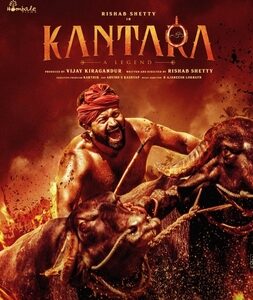
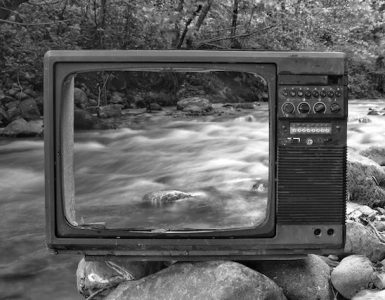
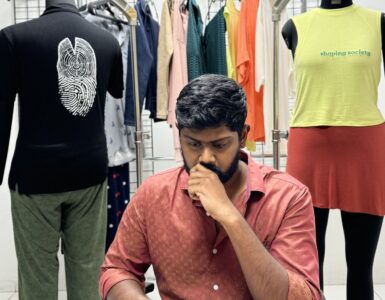

Add comment